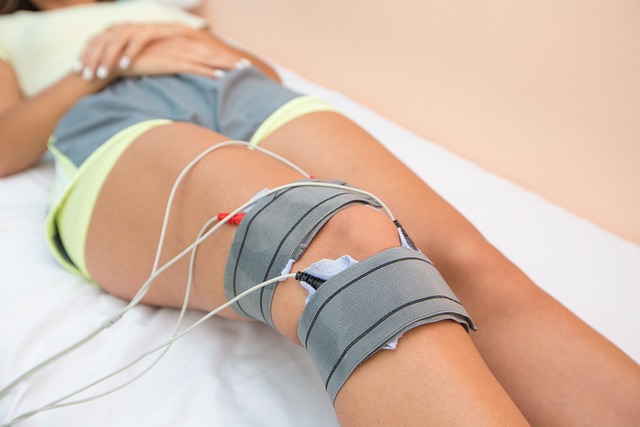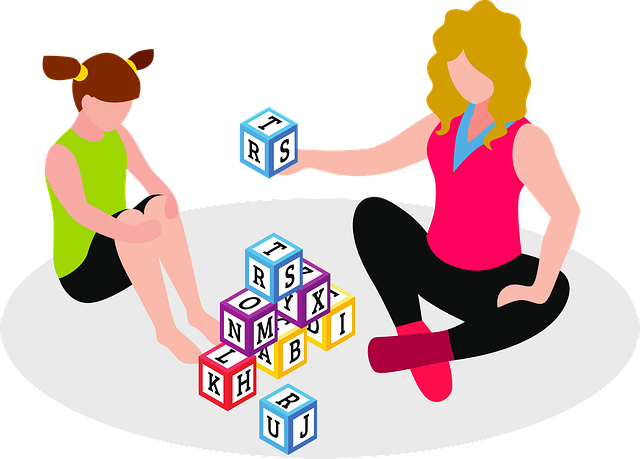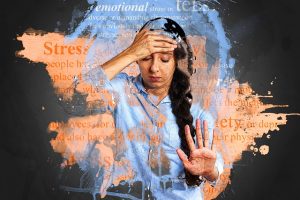Anxiety disorders are common mental health issues characterized by physical and psychological symptoms. Early recognition is vital, as unaddressed anxiety can lead to social isolation and decreased quality of life. Effective anxiety treatment includes Cognitive Behavioral Therapy (CBT), which tackles negative thought patterns. Mindfulness and meditation provide calming counterbalances to anxious thoughts. Breathwork exercises, regular physical activity, and social connection also significantly aid in anxiety management. Techniques like yoga, progressive muscle relaxation, therapy, and counseling are powerful tools for anxiety reduction, promoting overall well-being.
Anxiety disorders affect millions, but there are effective anxiety treatment methods available. This comprehensive guide explores a range of powerful techniques designed to reduce and manage symptoms. From cognitive behavioral therapy (CBT) and mindfulness practices to breathwork exercises and physical activity, you’ll discover natural ways to calm your mind and body. Additionally, we delve into the role of social connection, relaxation methods, and professional help, providing tools to overcome anxiety and improve overall well-being.
Understanding Anxiety Disorders: Symptoms and Causes

Anxiety disorders are a common mental health concern, affecting millions worldwide. Understanding these conditions is crucial in managing and treating them effectively. Anxiety can manifest in various forms, with different symptoms that significantly impact an individual’s daily life. Physical and psychological signs include increased heart rate, rapid breathing, insomnia, irritability, and persistent worry or fear. These symptoms often stem from a combination of genetic predisposition, environmental triggers, and brain chemistry imbalances.
Unaddressed anxiety can lead to severe disruptions in one’s ability to function normally. It may cause individuals to avoid certain situations or places, leading to social isolation and decreased quality of life. Recognizing the signs early on is vital for effective anxiety treatment. With proper diagnosis and support, many people learn to manage their symptoms, improving their overall well-being and daily functioning.
Cognitive Behavioral Therapy (CBT): A Powerful Tool for Anxiety Treatment

Cognitive Behavioral Therapy (CBT) is a highly effective and evidence-based approach for managing and overcoming anxiety disorders. This therapy type focuses on identifying and challenging negative thought patterns and behaviors that contribute to anxiety, providing individuals with valuable tools to cope with anxious feelings. By understanding the connection between thoughts, emotions, and actions, CBT empowers people to reframe their perspective, replace irrational fears with realistic ones, and gradually face their anxieties in a safe and controlled manner.
In the context of anxiety treatment, CBT offers structured techniques such as cognitive restructuring, exposure therapy, and mindfulness exercises. These strategies enable clients to track their thoughts, challenge distorted beliefs, and learn relaxation techniques. Over time, CBT helps individuals develop healthier coping mechanisms, enhance problem-solving skills, and build resilience against anxious episodes. As a result, many people experience significant improvements in their overall well-being and quality of life.
Mindfulness and Meditation Techniques to Calm Anxiety

Mindfulness and meditation have emerged as powerful tools in the arsenal against anxiety, offering a calming counterbalance to the mental chaos often associated with this condition. By focusing on the present moment and cultivating non-judgmental awareness, individuals can disrupt anxious thought patterns and reduce their impact. Simple mindfulness exercises, such as paying attention to one’s breath or scanning the body for tension, help anchor the mind in reality, fostering a sense of grounding that soothes restless nerves.
Meditation practices, ranging from guided visualizations to mantra-based routines, further enhance this process. Regular meditation can lead to changes in brain regions associated with anxiety and stress response, promoting emotional resilience. Incorporating these techniques into daily routines offers a natural and effective anxiety treatment, empowering individuals to better manage their symptoms and improve overall well-being.
Breathwork Exercises: Managing Anxiety through Respiration

Breathwork exercises offer a simple yet powerful tool for managing anxiety. By focusing on controlled and deliberate breathing, individuals can activate their parasympathetic nervous system, promoting relaxation and reducing stress responses. Techniques like diaphragmatic breathing or 4-7-8 breathing involve slow, deep inhales followed by gradual exhales, which help calm the mind and body. These exercises are accessible anytime, anywhere, making them an effective component in anxiety treatment routines.
Proper respiration allows for better oxygenation of the body’s systems, influencing brain chemistry and cognitive function. Research suggests that consistent practice can lead to significant improvements in symptoms of anxiety disorders. Incorporating breathwork into daily life encourages mindfulness and self-regulation, providing individuals with a proactive approach to managing their mental health.
Physical Activity and Exercise as Effective Anxiety Treatments

Incorporating regular physical activity and exercise into your routine can be a powerful anxiety treatment. When we engage in movement, our bodies release endorphins, often referred to as ‘feel-good’ hormones, which act as natural painkillers and mood elevators. This biochemical response can significantly reduce feelings of anxiety and promote a sense of calm. Moreover, exercise provides an effective distraction from anxious thoughts, allowing you to focus on the present moment and experience your body in a different light.
Beyond the immediate release of endorphins, consistent physical activity helps regulate sleep patterns and improves overall well-being, both of which are integral to managing anxiety effectively. Activities like yoga, swimming, or even brisk walking can be particularly beneficial as they combine movement with mindfulness, teaching you to observe your body without judgment and cultivating a deeper connection with yourself.
Social Connection and Support Networks in Overcoming Anxiety

Social connection is a powerful tool in the arsenal against anxiety. Building and maintaining a strong support network can significantly enhance anxiety treatment. When individuals struggling with anxiety feel understood, accepted, and connected to others, they often experience a sense of calm and security. Friends, family, or even support groups can provide a safe space to share concerns, gain different perspectives, and receive emotional validation.
Having people to rely on during anxious moments can make all the difference. Whether it’s talking things out with a trusted friend, seeking guidance from a mental health professional, or joining a community that shares similar experiences, social support networks offer a sense of belonging and help reduce feelings of isolation. This interconnectedness can foster resilience against anxiety, providing coping mechanisms and strategies for better management in the long term.
Relaxation Methods: Yoga, Progressive Muscle Relaxation, and More

Anxiety reduction techniques play a pivotal role in managing stress and promoting mental well-being. Among various methods, relaxation practices stand out as effective tools for anxiety treatment. Yoga, for instance, combines physical postures, breathing exercises, and meditation to calm both mind and body. This holistic approach not only eases symptoms of anxiety but also enhances flexibility and strength, contributing to overall health.
Progressive muscle relaxation (PMR) is another powerful technique where individuals systematically tense and then release different muscle groups. This process helps identify tension points associated with anxiety and teaches the body to recognize and let go of stress responses. PMR can be practiced daily, making it an accessible and effective way to reduce anxiety symptoms in everyday life.
Seeking Professional Help: Therapy and Counseling Options

When managing anxiety, seeking professional help through therapy and counseling can be immensely beneficial. Mental health professionals offer specialized techniques tailored to individual needs, providing a safe space to explore and understand anxious thoughts and behaviors. Cognitive-behavioral therapy (CBT), for example, is an effective approach that helps individuals identify and change negative thought patterns contributing to anxiety.
Therapy sessions empower individuals with coping strategies, such as relaxation techniques, mindfulness practices, and problem-solving skills. Counseling services can be accessed through various channels, including in-person meetings, online platforms, or group therapy sessions, making it convenient for those seeking support. These professional interventions offer a structured path to anxiety treatment, fostering personal growth and improved mental well-being.
